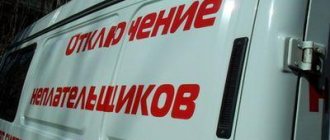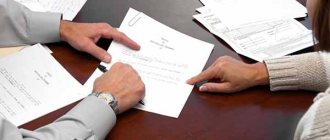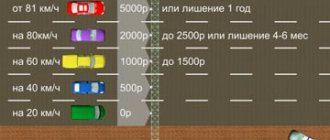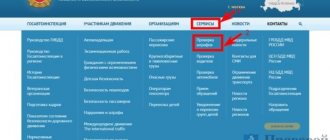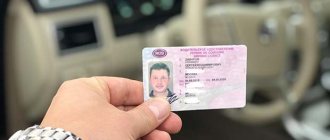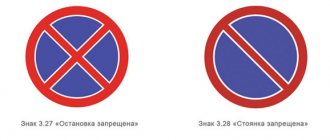The article said:
- What is judicial debt and why does it arise?
- When unpaid fines are handed over to bailiffs and how to avoid it
- Why is a paid fine handed over to the bailiffs for collection and what to do about it?
- What is an enforcement fee and in what cases can it be collected?
- How to properly pay debts on overdue traffic fines
- How to check the legal debt of a legal entity
- What consequences await the organization if the court debt is not paid on time?
What is judicial debt and why does it arise?
Legal debt of a legal entity is a debt of an organization to an individual, legal entity or state, which was transferred for collection to the Federal Bailiff Service (FSSP).
One of the most common causes of legal debt is unpaid traffic fines. Bailiffs can also transfer overdue taxes or debts of an organization to other legal entities or individuals.
The organization is given 5 days to voluntarily pay the debt from the date of receipt of the decision to initiate enforcement proceedings. You can also notify about the debt by SMS or through State Services, and then the period for voluntary payment is counted from the moment the notification is delivered. If you do not repay the debt on time, the bailiffs will forcefully collect it.
The statute of limitations for collecting money from traffic police fines is 2 years. If the period has expired and the fine has not been collected, then the enforcement proceedings end (Article 47 of the Federal Law “On Enforcement Proceedings”).
When bailiffs close bad debts
Sometimes it is possible to eliminate debt without repaying it if there are grounds. The bailiffs' debt is written off because it is hopeless. Before this, government officials carry out a set of enforcement actions, searching for an official place of work, property (cars, valuables, savings, shares).
The hopelessness of repaying obligations is characterized by certain criteria:
- The borrower does not take the initiative to resolve the conflict.
- The defendant has no official employment, business, or regular income.
- As a result of the search for property, it was not possible to find suitable objects for sale.
- The defendant does not have bank accounts through which transactions are carried out.
- The debtor committed fraudulent acts that resulted in criminal liability.
- The bailiff issued a decision to complete the enforcement proceedings due to the impossibility of complying with the court order.
In what cases are unpaid fines handed over to bailiffs and how to prevent this?
You have 10 days to appeal the fine from the date of receipt of a copy of the resolution (Article 30.3 of the Code of Administrative Offenses of the Russian Federation). Then the resolution comes into force, and 60 days are given to pay for it (Article 32.2 of the Code of Administrative Offenses of the Russian Federation). If you do not pay the fine, the traffic police will transfer information about the debt to the FSSP.
Organizations can also impose a double fine for evasion of payment (Article 20.25 of the Code of Administrative Offenses of the Russian Federation). In some cases it can be canceled; more details in the review.
The best way to prevent forced collection is to keep track of all fines on time. You can do this online:
- On the website of departments that issue fines, for example, the State Traffic Safety Inspectorate, MADI, AMPP, Rostransnadzor. To check, you need to know the details of your cars. You will have to manually enter the STS and state number of each of them.
- On State Services, if the organization has a verified account there. We talked about how to start it in the article.
- In the Online traffic police service. It will show fines from all departments - traffic police, MADI, AMPP, Rostransnadzor, as well as regional fines for paid parking. You only need to enter your fleet data once; further checks will occur automatically. The service will notify you about new regulations in your personal account and by mail, and will also remind you that the fine has an expiring discount or payment deadline.
Check the organization's fines
Statute of limitations for the collection of administrative fines
The situation with the collection of fines imposed for administrative offenses is somewhat different. By virtue of Art. 31.9 of the Code of Administrative Offenses of the Russian Federation, an administrative resolution is not subject to execution if it has not been executed within two years. The specified period also applies to traffic police fines.
Important! In this case, the debtor must not evade collection. If he commits actions aimed at deliberate non-payment of debt, the statute of limitations will be extended for the time during which the evasion was carried out.
Example 2
Friends Dmitry and Yuri were subjected to administrative punishment in the form of deprivation of the right to drive a vehicle for 1.5 years and a fine of 30,000 rubles. for drunk driving. Dmitry was ready to pay the fine imposed on him, but unexpectedly lost his job and developed health problems. Due to these circumstances, his family lived only on his wife's salary for a long time, i.e. Dmitry could not pay off the debt, although there was no malicious evasion of its payment in his actions. As a result, the enforcement proceedings against Dmitry were completed two years later by the bailiff due to the expiration of the statute of limitations for the administrative penalty. The situation was different with the fine imposed on Yuri. He had the opportunity to pay it, but took all measures to avoid this - he avoided appearing when summoned by the bailiff, hid his income and property. As a result, his enforcement proceedings were not completed, despite the expiration of the two-year period.
Why is a paid fine handed over to the bailiffs for collection and what to do about it?
It happens that the paid fine is handed over to the bailiffs for collection. This happens if:
The fine was paid late, the payment deadlines had already expired.
For example, deadlines often expire when paying on the last day because the bank does not have time to process the payment. The traffic police marks the fine as unpaid and transfers it to the bailiffs for collection.
In this case, it is enough to provide the bailiffs with payment documents - a receipt, payment order or bank statement. Enforcement proceedings end. But if the bailiffs have already managed to collect the debt for the paid fine, you need to contact the traffic police for a refund. Read how to return overpaid funds.
The bank transferred the money, but did not enter payment information into the government database.
All data on payments for fines is collected in the State Payment System - GIS GMP. Inspectors and bailiffs check the payment of fines using GIS GMP data. Banks are required to immediately transmit information about any government payment there.
Sometimes, due to a technical glitch, the bank does not transmit information or transmits it too late. Then the traffic police considers the fine unpaid. In this case, you need to contact the bank with a complaint and demand that the error be corrected, and provide payment documents to the bailiffs to complete the enforcement proceedings.
There was an error in the details during payment.
This is the most common reason for transferring a paid fine to the bailiffs. In this case, you will have to pay the debt for enforcement proceedings, and then return the money for the erroneous payment. To get a refund, you need to contact the department that received the money for the fine - for example, the traffic police. You can also try to adjust the payment through the bank if the money has not yet reached the recipient.
Errors usually occur due to inattention. Sometimes the accountant does not know which fields need to be filled in in the payment order. For example, when paying fines, you must fill in the “Code” field, otherwise the fine will not be paid in the GIS GMP.
To avoid mistakes, it is better to use special services for payment. For example, Online Traffic Police automatically generates completed payment orders for each fine. Fines can also be uploaded to the client bank or paid by card.
When does collection stop?
If you want to write off debts from bailiffs without bankruptcy, this requires grounds provided for by law. As a general rule, collection ceases only after full repayment of obligations. Even if there are only a few hundred rubles left before this, the bailiff will automatically deduct them from your bank card.
Withholding ends immediately after the last part of the debt is removed or the property is sold at auction in favor of the claimant. If you see that you are free from obligations, and the bailiffs continue to write off receipts from transactions, immediately call your FSSP employee by phone to understand the situation.
In some cases, you will have to resolve the issue by writing a complaint to the head of the SSP or to the court.
Articles:
What payments will bailiffs not be able to collect debts and fines from?
How to find yourself on the blacklist of bailiffs
What is an enforcement fee and in what cases can it be collected?
After the initiation of enforcement proceedings, the bailiffs have the right to withhold an enforcement fee from the debtor. Its amount is:
- for individuals - 7% of the fine amount, but not less than 1,000 rubles;
- for legal entities - 7% of the fine amount, but not less than 10,000 rubles.
The enforcement fee is an additional penalty in favor of the FSSP; it is not deducted from the total amount of debt. That is, if an organization does not pay its debt voluntarily, even for a small fine of 250 rubles you will have to pay another 10 thousand.
Types of liability for debts
Criminal liability for debts threatens only in exceptional cases, if the debtor deliberately and maliciously does not pay creditors and collectors. Most often you will have to answer with money:
- the principal debt on a loan, receipt or other obligations can be collected through the court;
- in addition to the principal amount of debt, penalties, penalties, and fines will almost always be collected (their amount will be determined by agreement or law);
- when the bailiffs take over the collection, they can take away the debtor’s property, seize all accounts, and write off money from them;
- Collectors may be involved in collection and will extract money through calls, personal meetings, and other methods.
Based on the results of collection, the amount of penalties may exceed the principal debt. If the sale of property begins, it may be sold below market value, which is also unlikely to please the debtor.
In addition to financial and property claims, the debtor may face more serious problems. There are several cases when he may be brought to administrative or criminal liability for debts, for illegal actions when applying for loans, during enforcement proceedings or bankruptcy. Read more about the grounds for criminal prosecution below.
How to properly pay debts on overdue traffic fines
It all depends on whether the bailiffs managed to initiate enforcement proceedings against the organization.
Previously, even after transferring the fine to the bailiffs, it was possible to pay the decision using the details of the traffic police. The rules have changed since 2021:
- If the fine is overdue, but there is no enforcement proceedings yet, you need to pay the fine itself.
- If enforcement proceedings have already been initiated, it must be paid according to the details specified in the FSSP resolution. Once the court debt is paid, the fine debt will be removed automatically.
As a rule, the organization only has a resolution from the traffic police, and the details of the bailiffs are unknown. This problem can be solved with the help of automatic control of legal entity fines. The Online Traffic Police service checks every day whether the fine has been handed over to the bailiffs for collection. If submitted, the service will show the payment details to the FSSP and automatically generate the correct payment invoice.
How to check and pay legal debt of a legal entity
There are three ways to check your debt:
- On the FSSP website.
Go to the “Data Bank of Enforcement Proceedings” section and mark that you want to check the debt of the legal entity. Enter the name of the organization and address with zip code and click “Find”.
The site will show all the organization’s debts to the bailiffs. If there is a debt, you can immediately pay it by card. Payment from a current account is not provided, but you can make a bank transfer using the details specified in the resolution on initiating enforcement proceedings.
- On State Services.
The organization must have an account on the portal. It can only be created by the manager or his representative with the right to act without a power of attorney. If you have an account, you can request information in the “Judgment Debt” section. Debts can be paid by card or electronic money.
- On the portal Onlinegibdd.ru.
Any employee of the organization can create an account in the Online State Traffic Safety Inspectorate. The service will show the legal debts of the company, its branches and divisions. In addition, it will be clear what fine the court debt was issued for. The service will notify you of each new debt by mail and in your personal account.
You can pay for enforcement proceedings on the Online State Traffic Safety Inspectorate either from a bank card or from the organization’s current account. To pay from a current account, the service will generate payment slips.
Check the company's legal debt and fines
What consequences await the organization if the court debt is not paid on time?
In case of forced collection, bailiffs can:
- Write off money from the organization's accounts, taking into account the performance fee.
- Seize the organization's current accounts if there are not enough funds to write off the debt. As soon as the required amount appears in the account, it will immediately be written off against the debt.
- Place restrictions on the company's property. In particular, bailiffs can impose registration restrictions on a company's vehicle fleet. Not a single car can be re-registered or deregistered. Seizure of property is possible if the amount of debt in enforcement proceedings is above 3,000 rubles.
Restrictions on the organization’s accounts and property will not be lifted until the debt is paid. The arrest must be lifted within 3 days after the decision to end the enforcement proceedings is made. If this does not happen, the debtor can contact the bailiff personally.
Bailiffs' decisions to lift restrictions do not immediately reach the traffic police. The organization has to contact the FSSP for a copy of the document on the completion of enforcement proceedings, and then personally provide it to the traffic police. Therefore, it is easier and faster to pay off debts voluntarily or avoid them.
Checking fines and legal debts of an organization
Check for free
Don't miss new useful publications
We will tell you about the intricacies of the legislation, help you understand it and tell you what to do in controversial situations.
Visit to the bank
In this way you also have the right to pay all debts. To do this, you will need the number of the enforcement proceedings, the amount of obligations to the claimant and the bank details of the FSSP. Don't forget to take your passport with you.
You have the right to deposit money into the bailiffs' bank account at any bank. Unfortunately, some of them charge a commission, which will be a minus. Therefore, before you pay your debt, check this information with the cashier. Today, Sberbank and VTB do not charge commission. But what will happen tomorrow is unknown.
Also a minus are the queues. Most often, this inconvenience is observed in branches of large banks. You can spend an hour, or even two hours, propping up the wall while waiting for the debt to be paid.
When transferring money to the bailiffs' bank account in this way, do not forget to take a receipt. It will be proof that you have fulfilled your obligations to the claimant.
